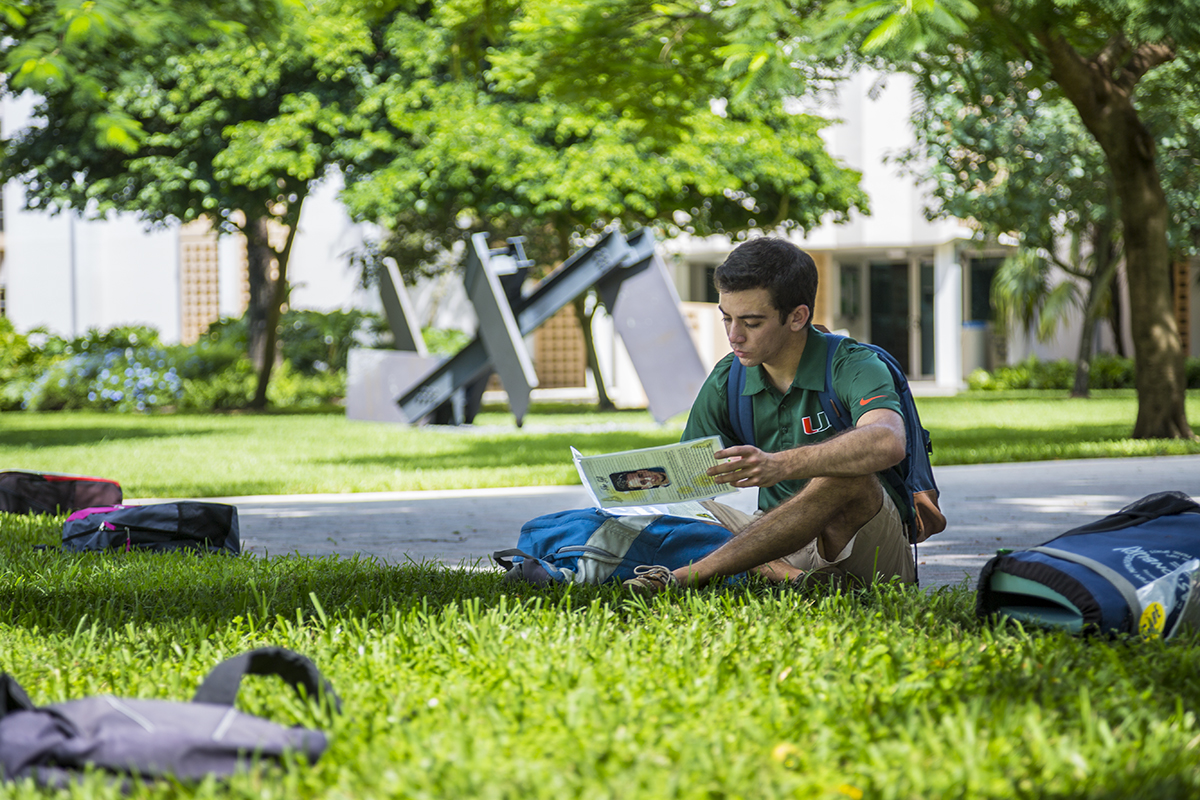
Students stopped in their tracks Thursday when they saw more than 1,000 bookbags strewn across the Foote Green as part of the Send Silence Packing campaign for suicide prevention.
Send Silence Packing is a traveling campaign that uses 1,100 donated backpacks as a visual representation of each college student who dies by suicide every year. The campaign was started by Active Minds, a national organization with a goal to increase awareness of mental health issues.
“You don’t really understand what 1,100 is until you see it. It makes it real,” senior Marloche Azor said. “To me, I imagine it as 1,100 people came and dropped their book bags and left the world.”
Stories from those who have attempted suicide as well as loved ones of suicide victims were attached to the backpacks to make stronger connections.
Students were encouraged to submit their own stories and leave comments in a reflection journal, which was already filled with reactions to the display from students across the nation.
“There is a wide array of stories and there’s a story of people just like you and just like me in each one of those backpacks,” said Gabriel Garcia-Vera, a road staffer for Send Silence Packing.
According to senior David Pearl-Schwartz, president of Active Minds at the University of Miami, those who are not suffering from a mental illness have a significant role when it comes to bringing awareness to the issues surrounding mental health.
“Even if a person doesn’t suffer themselves, it’s very likely that they know someone who does, so by eliminating the stigma surrounding mental health they make it more OK,” he said. “They’re support systems whether they know it or not.”
Some of the first steps suggested to help save a life are listening to peers and paying attention to friends’ behavior. Daija Boyd, a peer educator for Counseling Outreach Peer Education (COPE), believes that when students are not listening, it forces their peers to find an alternative way of voicing their problems.
“One of the reasons individuals take this route is because they feel that’s the loudest way to say something,” Boyd said.
While the display’s purpose was to act as a representation of the suicide problem within the nation, the display also played a part in generating discussions about mental health issues and what mental health is in general.
“Mental health is not just suicide and depression,” Garcia-Vera said. “It’s all of the things that go into making a person healthy emotionally.”
Mental health is a combination of emotional, psychological and social well-being, according to mentalhealth.gov.
Sophomore Christian Braden felt that the display succeeded in catching the attention of passersby and spreading awareness of the reality of mental health issues on campus.
“When I was walking out of class I was like, ‘What’s with all of these backpacks?’ and then I was reading the signs about mental illness and I saw the word ‘suicide’ and then I just stopped,” Braden said.
It is reported that one-fourth of students can be diagnosed with a mental health disorder. The display served as a way to let others know that mental disorders are normal.
“It allows people to say this is OK to talk about,” Garcia-Vera said. “This is not going to be that thing that we put back into the closet and never say again.”
Pearl-Schwartz said one of the most difficult hurdles next to getting the event approved was raising money to actually bring the event to the campus.
“This display goes to eight to 12 campuses in a semester, so we had to show them we would be a great candidate,” he said. “As a campus, the fundraising was a big challenge, so we reached out to all of our networks personally and then we went to other organizations.”
As a result of the fundraising efforts, the Active Minds at the U organization was able to raise a little more than the necessary $5,000 to bring the display to campus. Pearl-Schwartz says the money will go to support Active Minds.
If you or someone you know needs more information or needs to speak to someone about mental illnesses, reach out to a friend, the Counseling Center, Canes Care for Canes or Active Minds at the U, or call the National Suicide Prevention Lifeline at 1-800-273-TALK (8255).





